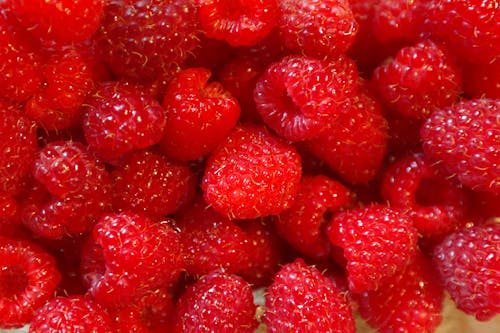In recent years, the popularity of organic food has soared, with more people opting for organic produce, dairy, and meats in the belief that they are healthier and more sustainable. From farmers’ markets to grocery store aisles, organic labels are now a common sight. But as organic products continue to dominate the market, it’s essential to ask: Is organic really worth the extra cost? Let’s take a closer look at the factors that contribute to the organic debate, breaking down the science, the benefits, and the limitations of choosing organic.
Understanding Organic Farming

At the heart of the organic movement is the concept of farming without synthetic chemicals, pesticides, and fertilizers. Organic farming methods prioritize ecological balance and biodiversity, using crop rotations, natural fertilizers (such as compost or manure), and natural pest control methods. These techniques aim to minimize environmental impact, reduce soil degradation, and protect water and air quality.
In addition to avoiding synthetic pesticides and fertilizers, organic farming often prohibits the use of genetically modified organisms (GMOs). The emphasis on sustainability, biodiversity, and soil health is a major draw for many consumers, as they believe it leads to more environmentally friendly practices and better-quality food.
The Nutritional Debate: Does Organic Mean Healthier?
One of the primary reasons people choose organic products is the belief that they are healthier than conventionally grown foods. However, the scientific evidence supporting the nutritional superiority of organic foods remains mixed.
Several studies have suggested that organic produce may contain slightly higher levels of certain nutrients, such as antioxidants, vitamins, and minerals. For example, organic fruits and vegetables tend to have higher levels of vitamin C, iron, and magnesium. These differences are likely due to the healthier soils that organic farming promotes, which could lead to more nutrient-rich crops. Additionally, some studies have shown that organic crops contain lower levels of pesticide residues, which can be a significant concern for health-conscious consumers.

However, other studies have found no significant difference in the nutrient content between organic and conventionally grown produce. The nutritional value of any food—organic or not—depends on various factors, including the soil quality, climate, and the specific variety of the crop. Furthermore, while organic foods might have lower pesticide residues, conventional farming does not use pesticides indiscriminately, and the levels found on produce are usually within safety limits.
Environmental Impact: Organic vs. Conventional Farming
Another key reason many consumers opt for organic food is the belief that it is better for the environment. Organic farming practices are often viewed as more sustainable because they aim to reduce chemical inputs and encourage biodiversity.
In theory, organic farming reduces pollution and protects water quality by using natural fertilizers and avoiding synthetic pesticides, which can leach into the soil and water supply. Furthermore, organic farming practices emphasize crop rotation, which helps maintain soil health and reduce the need for synthetic fertilizers. It’s also argued that organic farming supports healthier ecosystems, as it often involves fewer monocultures and encourages the growth of diverse plant and animal species.
However, the environmental benefits of organic farming are still up for debate. While organic farming reduces chemical use, it often requires more land and resources to produce the same amount of food as conventional farming, potentially resulting in greater overall environmental impact. For instance, organic farms may yield fewer crops per acre, requiring more land to produce the same quantity of food. This can lead to deforestation or the conversion of natural habitats into farmland, which might undermine the environmental benefits of organic farming.
Some critics argue that conventional farming, with its higher yields, can be more efficient in terms of land use, allowing farmers to produce more food with less land. Additionally, the use of GMOs and synthetic pesticides has allowed for more resilient crops, leading to higher food security and lower prices for consumers.
Cost Considerations: Is Organic Worth the Price?
The price difference between organic and conventional products can be substantial. Organic foods often cost more due to the labor-intensive methods required for farming, the certification process, and the lower yields typically associated with organic practices. For many consumers, the higher cost of organic products is a significant factor in their purchasing decisions.
One of the primary reasons organic products are more expensive is the fact that organic farms tend to use more manual labor, which can be costly. Organic pest control, such as using beneficial insects or physical barriers, is more labor-intensive than spraying chemicals. Additionally, organic certification and inspection processes can add further costs for farmers.
While the cost of organic foods can be prohibitive for some, others are willing to pay the premium for the perceived health and environmental benefits. However, it’s important to note that while organic foods can be more expensive, not all organic products offer the same health benefits. Many of the advantages of organic foods—such as reduced pesticide residues—may not justify the higher cost for every consumer. For example, the difference in nutrient content between organic and conventional produce may not be enough to warrant the extra expense for most people.
What to Choose: Organic or Conventional?

The decision between organic and conventional foods ultimately depends on your personal priorities and circumstances. If you are concerned about pesticide residues, supporting sustainable farming practices, or avoiding GMOs, organic food may be a better option for you. On the other hand, if cost and accessibility are more important factors, you might consider purchasing conventional foods while being mindful of the types of produce that tend to have higher pesticide residues.
For consumers who want to balance cost and health benefits, focusing on buying organic for the “Dirty Dozen”—a list of produce items that are most likely to contain pesticide residues—can be a good strategy. These include items like strawberries, apples, spinach, and potatoes. On the other hand, the “Clean Fifteen,” which includes produce like avocados, sweet corn, and pineapples, tends to have lower pesticide residues and may not require the organic label.
The Takeaway: Is Organic Worth It?
The answer to whether organic food is worth it depends on a variety of factors. While organic foods can offer benefits in terms of lower pesticide residues, better environmental practices, and potentially higher nutrient levels, the scientific evidence remains inconclusive about whether they are definitively healthier or more sustainable than conventionally grown alternatives.
For some, the higher cost of organic foods is justified by the desire to support sustainable farming practices and reduce exposure to chemicals. For others, conventional foods may provide the same nutritional value at a more affordable price. Ultimately, the choice between organic and conventional comes down to personal preferences, values, and budget.
Whether you opt for organic foods or not, focusing on a balanced, plant-rich diet and reducing food waste can have a far greater impact on your health and the environment than whether the food is grown organically or conventionally. The most important thing is to make mindful choices that work for you, your family, and the planet.





